The Weddell Sea
A Holy Event Is Approaching...
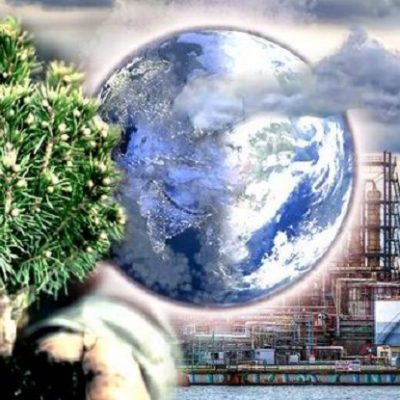
Climate Change
Science does not always correctly distinguish between environmental changes, which are caused by Nature, and those which are caused by man.
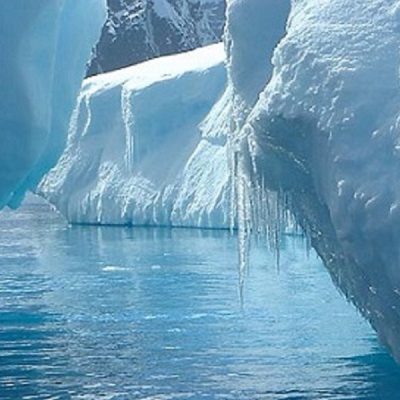
Global Warming
The warming which is melting the ice shelves in West Antarctica is one case of mistaken identity. The Weddell Sea is shaping climate change.
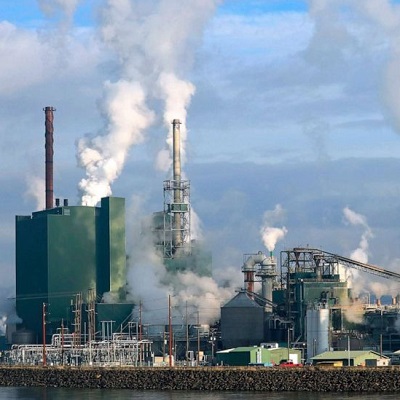
CLIMATE Lies
The warming in the region is thought to be caused by (the Industrial Age) discharging “greenhouse gases” into the upper atmosphere…
THE TRUTH IS VERY DIFFERENT!
The cradle of the changes in the world climate is the Weddell Sea in West Antarctica.
The Weddell Sea is the Earth's Yoni; the point where Her Core (unborn Moon) will come out, so understandably there is a lot of activity going on under the Weddell Sea floor as Her time to give birth draws closer. The activity is increased from late August until early October. Can you guess why? And what does this tie in with?
Job 38:8 Who shut up the sea door when it broke forth as if it had issued out of the womb?
The mystery of the changing world climate is not really a mystery and man is not to be blamed: A butterfly is flapping its wings in Antarctica.
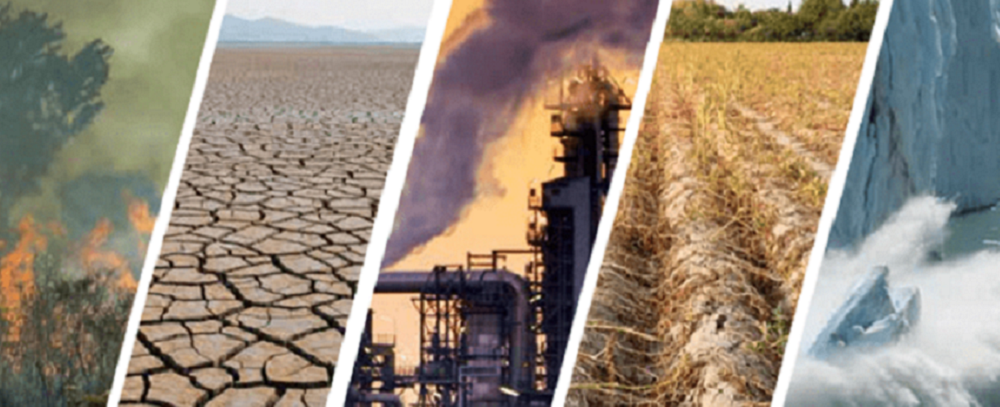
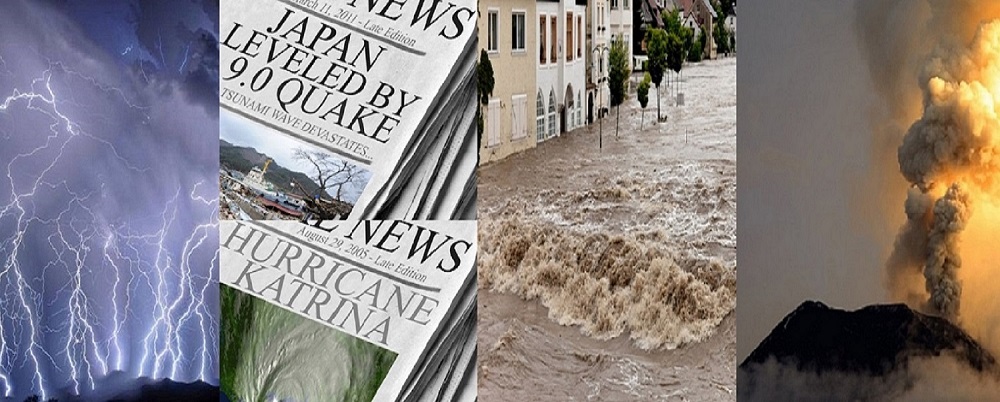
A climatologist, or any scientist whose work involves ‘climate change’, cannot refer to ‘climate change’ without also referring to the Weddell Sea. Climate change and the Weddell Sea have an unbreakable connection, but the ‘elite’ don’t want scientists to draw the attention of the world population to the Weddell Sea. How many times have you heard mainstream media using the words “climate change” and “Weddell Sea” in the same breath?
You will never hear a ‘climate change’ scaremonger refer to the sudden formation of a large mysterious melt hole in Antarctica’s Weddell sea ice. You will never hear a ‘climate change’ scaremonger mention the word polynya or talk about outgassing in the Weddell Sea. You will never hear a ‘climate change’ scaremonger quote atmospheric physicist Kent Moore.
The gigantic, mysterious hole is quite remarkable. It looks like you just punched a hole in the ice. Polynyas form in coastal regions of Antarctica. What’s strange here is that this polynya is deep in the ice pack and must have formed through other processes that aren’t understood.
Kent Moore: University of Toronto Atmospheric Physicist
Sea ice and clouds blanket the Weddell Sea in Antarctica.
Job 38:9 When I made the cloud the garment thereof, and thick darkness a swaddlingband.
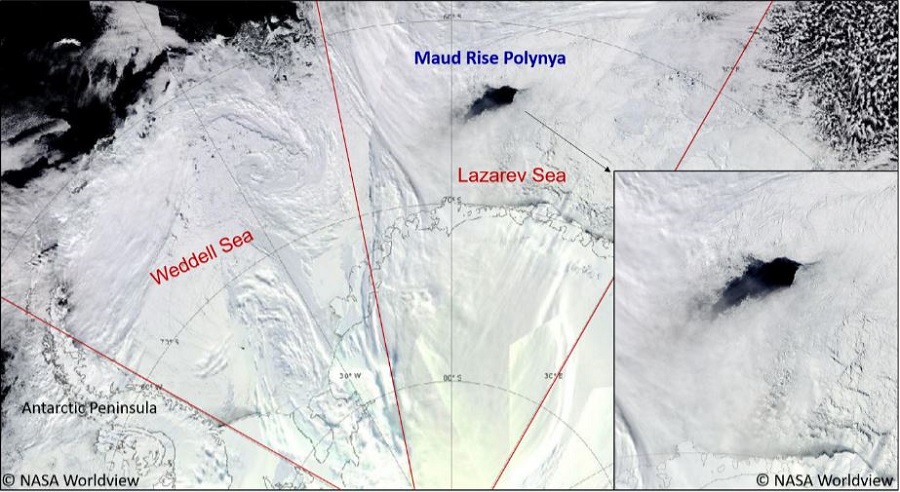
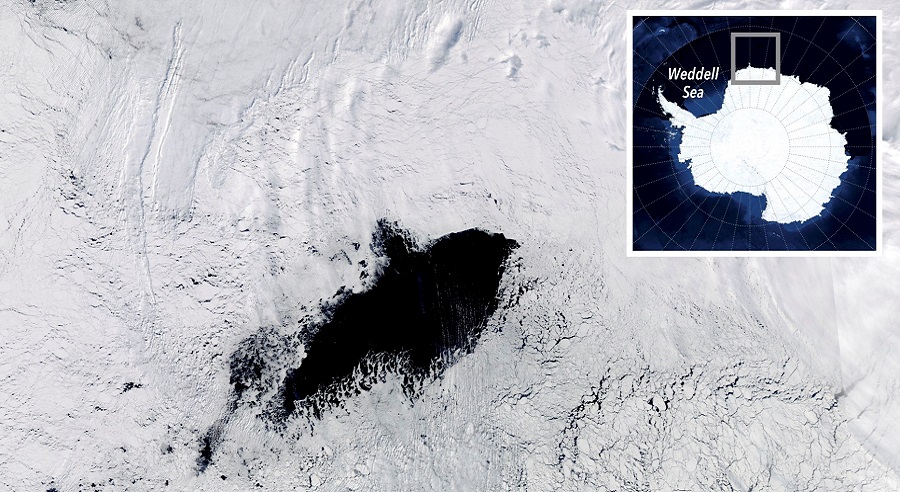
The discovery of the Weddell Sea “Melt Hole” was a major setback for fearmongers who want to convince us that we are responsible for climate change. There’s no easy way to convince us that ‘anthropogenic CO2 emissions’ (human activity) formed a volcanic mountain range under Antarctica’s Weddell Sea ice! But the climate change fearmongers keep on pushing their ‘anthropogenic’ theory because it furthers their ‘sustainability’ agenda.
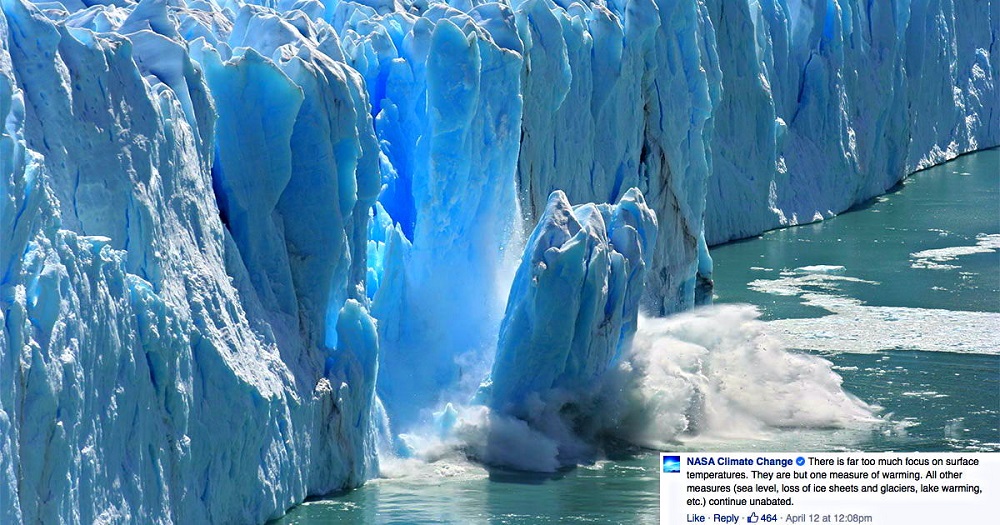
NASA does not include HEAT from the Earth's growing Core for the same sinister reason NASA encourages space travel.
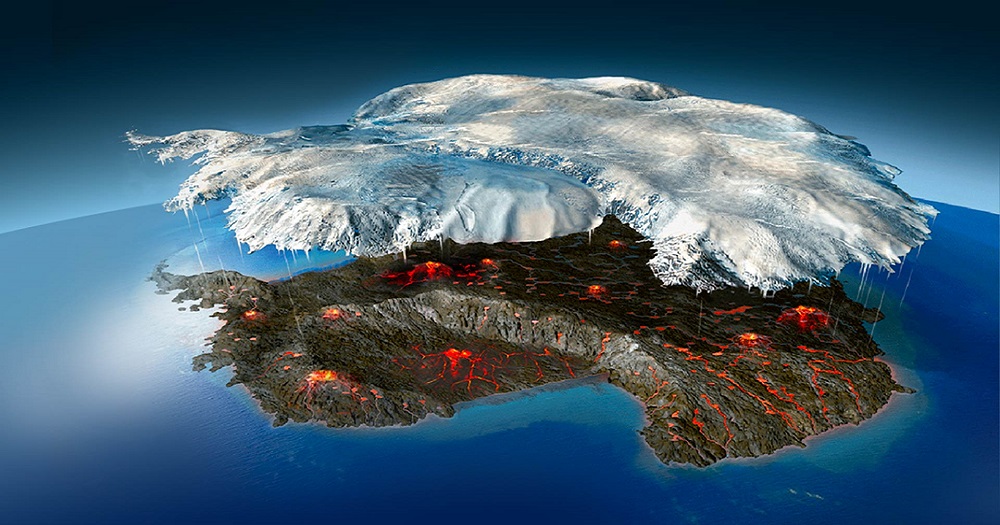
More than 138 volcanoes are located under the ice in West Antarctica and they are much more active than you have previously been told.
Do you think they don't know what's going on under the Weddell Sea? Or...
Do you think they don't want you to know?
The Antarctic area (about 14 million sq. km) greatly increases during winter when sea ice forms at the periphery, and the world climate is very sensitive to the extent of the winter sea-ice. Sea ice insulates the ocean from the atmosphere, stabilizes the surface water and maintains a balanced Antarctic atmosphere. A balanced Antarctic atmosphere is important to a balanced world atmosphere.
Lately the Antarctic atmosphere has been increasingly agitated. Higher than normal (and climbing) ocean temperatures and rapidly melting ice is disturbing the atmosphere. Less sea ice results in reduced reflection and insulation, and this has a direct effect on the Antarctic atmosphere causing local weather changes which impact on the world’s climate.
Hitherto, stable polar conditions exerted a balancing influence over the Earth’s climate. Now, rising temperatures in the Antarctica translate into large fluctuations in world temperatures, as well as typhoons, hurricanes and tornadoes. The sea ice pack stabilizes ocean conditions and stable ocean conditions maintain a stable world atmosphere. Without the ice lid, the ocean temperature loses heat to the atmosphere. Presently, the amount of heat lost to the Antarctic atmosphere is significant.
The greatest consistent rise in temperature in the Southern Hemisphere is taking place in West Antarctica (the vicinity of the Weddell Sea) where the meteorological records of the British Antarctic Survey Faraday Research Station, show a rise in mean annual air temperature of 2.5 °C, though this figure may appear small, in terms of the affect on sea ice and the atmosphere, it is great.
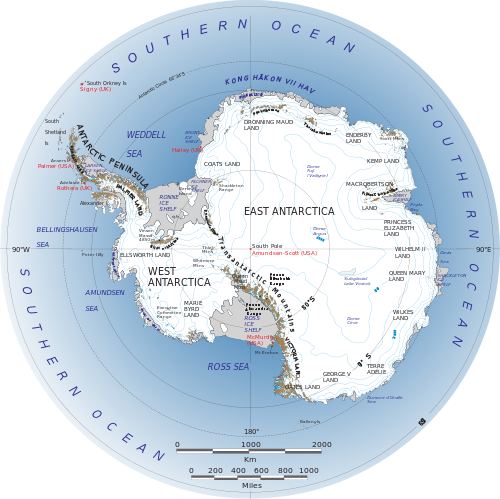
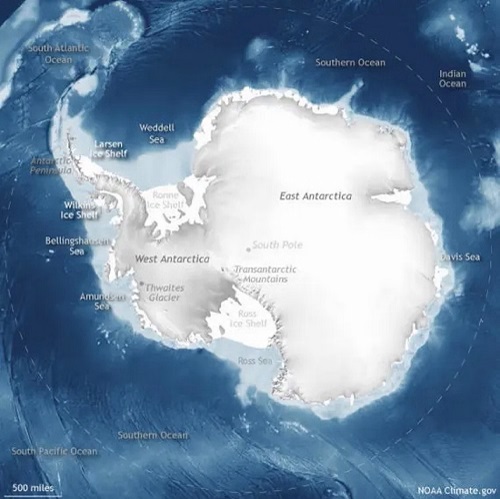
You may think about global warming, iceberg calving, rising sea levels, and the tsunami in Japan. Scientists have linked the earthquake and tsunami that struck Japan in March 2011 with the calving of a Manhattan-sized iceberg from the Sulzberger Ice Shelf more than 13,000 kilometers away in Antarctica. The finding, detailed in a paper published online in August in the Journal of Glaciology, marks the first direct observation of such a connection between tsunamis and icebergs. The Antarctic Sun.
You may wonder whether man could survive rising sea levels caused by global warming. Enough water is locked in ice there (Antarctica) to raise global sea level by about 60 meters (197 feet). Considering that at least one-third of humanity lives in coastal areas, it would be catastrophic should the ice sheet suddenly and totally collapse. Preposterous! Conventional wisdom says it is inconceivable to melt Antarctica’s ice fast enough to significantly affect sea level in our lifetime, or even that of our great grandchildren. So why worry? Antarctica is remote and irrelevant to the lives of ordinary citizens in the world today, right?
On the contrary, Bindschadler asserts, Antarctica’s ice sheets are entirely relevant. “The West Antarctic Ice Sheet has, does, and will continue to affect sea level. We know that if this sheet changes in size, it will change sea level. That connection is direct and irrefutable”. Today, scientists see serious signs of stress on both ice sheets. Should they both collapse, sea level will be 10 meters (32 feet) higher, and cartographers will have to redraw the contours of all Earth’s continents. “Time on the Shelf” by David Herring.
Peter Barrett (New Zealand’s Victoria University of Wellington) compared Antarctica to a person with declining health. “It’s like someone who’s declining in health and until the problem is well advanced it’s not terminal,” he said. “This is a wake-up call”. The Earth is in labor, and since pregnancy is not an illness, the analogy is not entirely appropriate. Though several biblical references to the condition of the planet(s) have been excluded, a few remain.
“Birth-pangs” has been interpreted variously as “sorrow”, “struggles”, “tribulations”, but it appears correctly in (some) Greek bibles and in the New International Version.
Matthew 24:7 There will be famines and earthquakes throughout places, but all these things are the beginning of birth-pangs.
Mark 13:8 There will be earthquakes in places, there will be famines, beginning of birth-pangs these things are.
The "Climate Crisis" agenda is the hoax. Climate Change is real. Climate Change is natural. Climate Change is caused by the powerful Forces naturally unfolding deep inside the Earth. Humans are not causing it and humans cannot stop it.

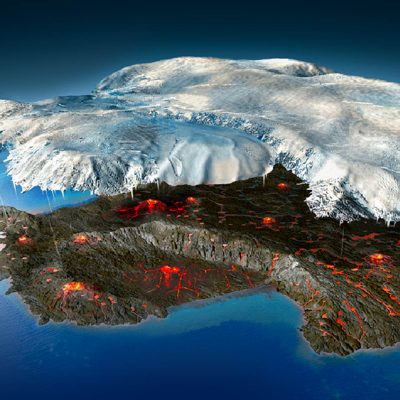
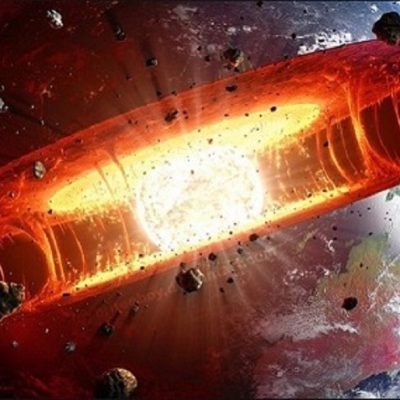
Climate Crisis Lies
Global Warming
Climate Change
A Butterfly is flapping its wings in Antarctica
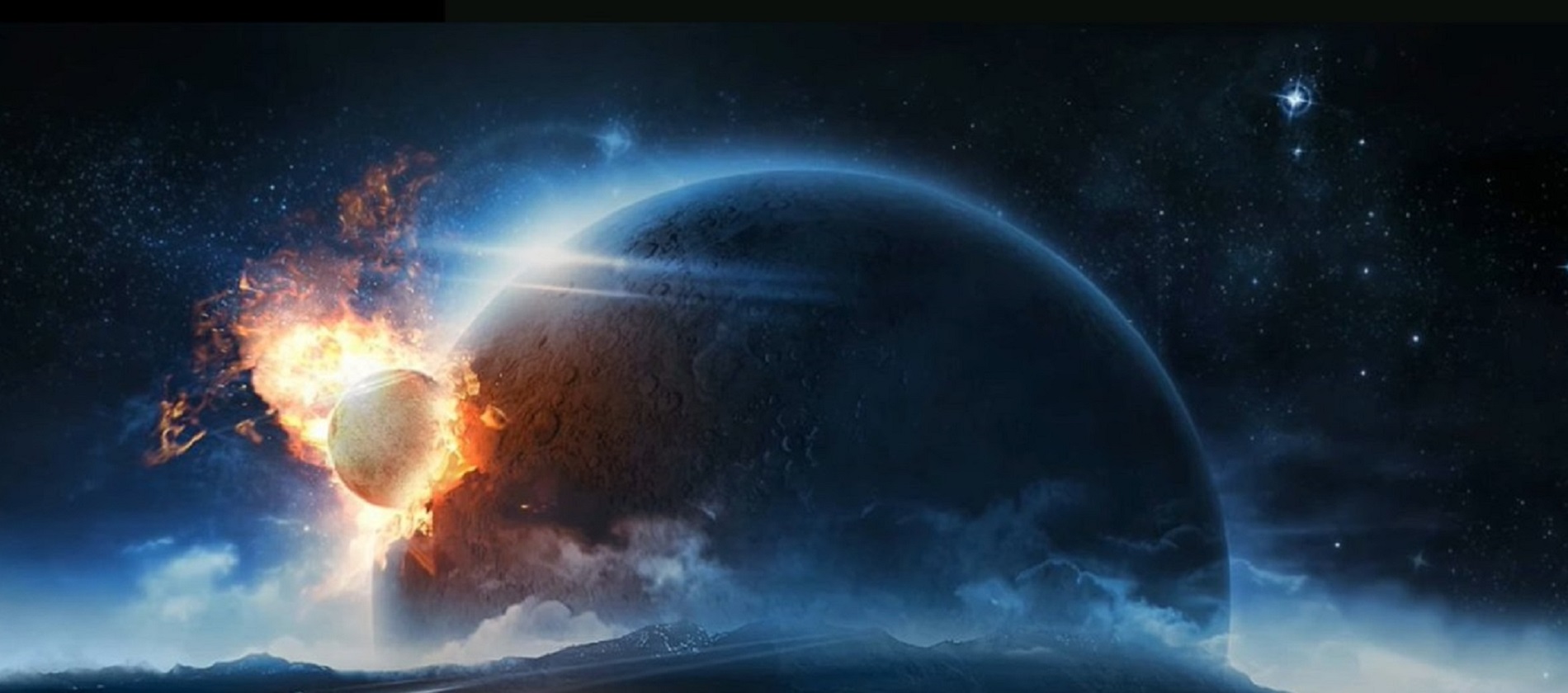
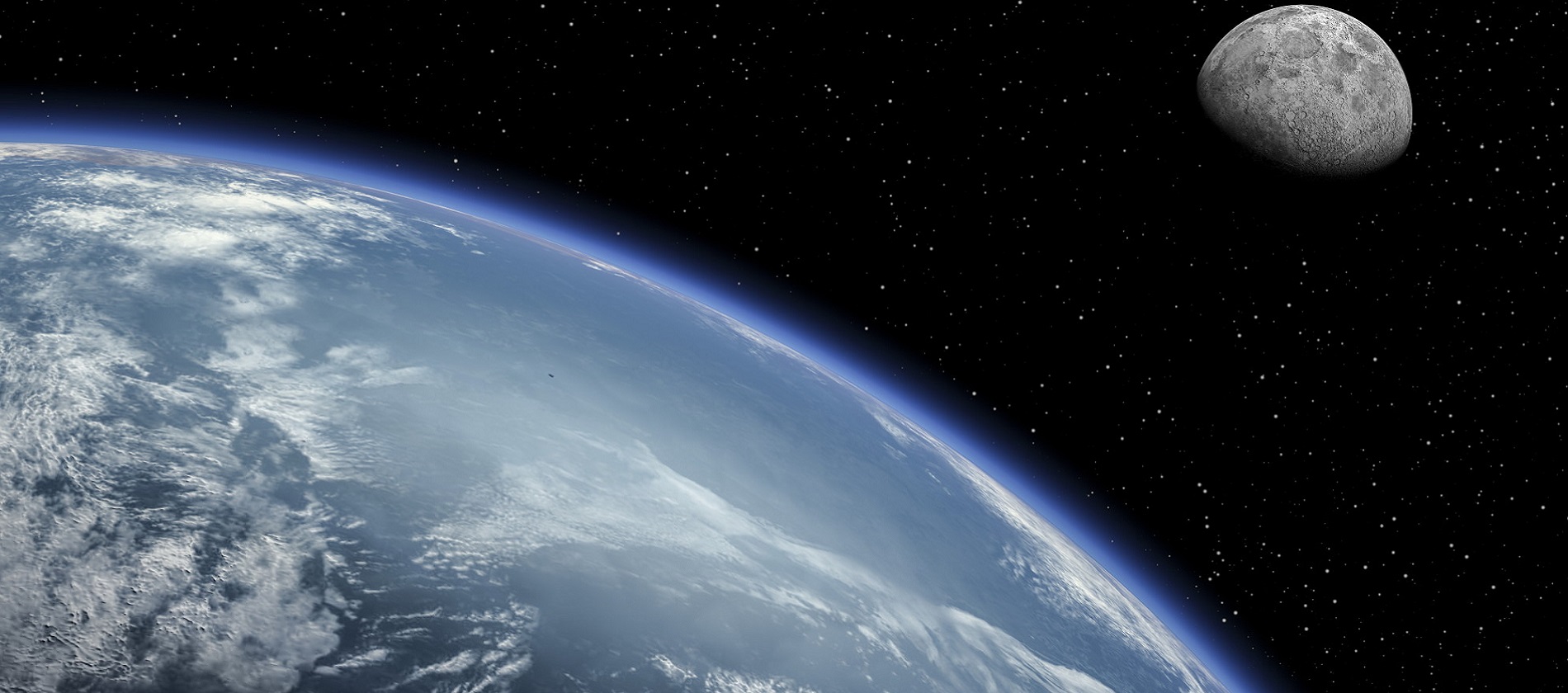
The Hopi nation calls the Earth: “The Mystery Egg”. The Earth is rumbling and shaking in what Jesus called: “birth pangs”. All people should know the Earth is fertile and will hatch out her Core through her “Yoni”: The Weddell Sea.
All people should know that the widening of the Yoni in the Spring months of the Antarctic are caused by the Earth’s birth pangs. Once the truth becomes general knowledge, the Day of Hatching will be a Day of Great Celebration, not a day of fear.

- "He that has ears to hear, let him hear."
The Good News
- Psalms 25:5 Lead me in thy truth, and teach me: for thou art the God of my salvation; on thee do I wait all the day.